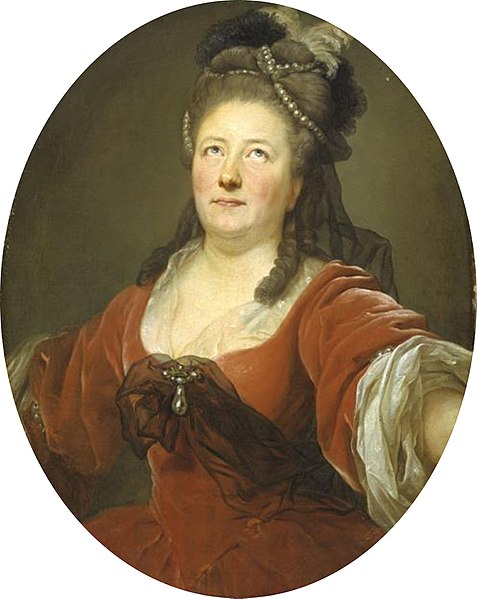Friederike Sophie Seyler was a German actress, playwright and librettist. Alongside Friederike Caroline Neuber, she was widely considered Germany's greatest actress of the 18th century; Gotthold Ephraim Lessing described her in his Hamburg Dramaturgy as "incontestably one of the best actresses that German theatre has ever seen."
Friederike Sophie Seyler by Anton Graff, Kunsthalle Hamburg
Abel Seyler was a Swiss-born theatre director and former merchant banker, who was regarded as one of the great theatre principals of 18th century Europe. He played a pivotal role in the development of German theatre and was considered "the leading patron of German theatre" in his lifetime. He supported the development of new works and experimental productions, helping to establish Hamburg as a center of theatrical innovation and to establish a publicly funded theater system in Germany. Working with some of Germany's foremost actors and playwrights of his era, he is credited with pioneering a new more realist style of acting, introducing Shakespeare to a German language audience, and with promoting the concept of a national theatre in the tradition of Ludvig Holberg, the Sturm und Drang playwrights, and serious German opera, becoming the "primary agent for change in the German opera scene" in the late 18th century. Already in his lifetime, he was described as "one of German art's most meritorious men."

His birthplace Liestal in Switzerland (1780)
Heinrich Carl von Schimmelmann, Seyler's business associate who became a Danish statesman
His second wife Friederike Sophie Seyler, Germany's most famous actress of the late 18th century, painted by Anton Graff
Seyler's long-time collaborator, the actor Konrad Ekhof, regarded as Germany's finest actor of the 18th century




